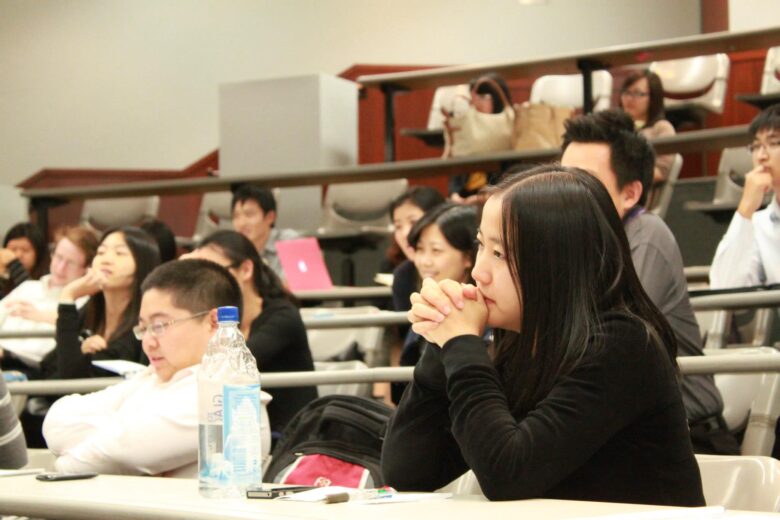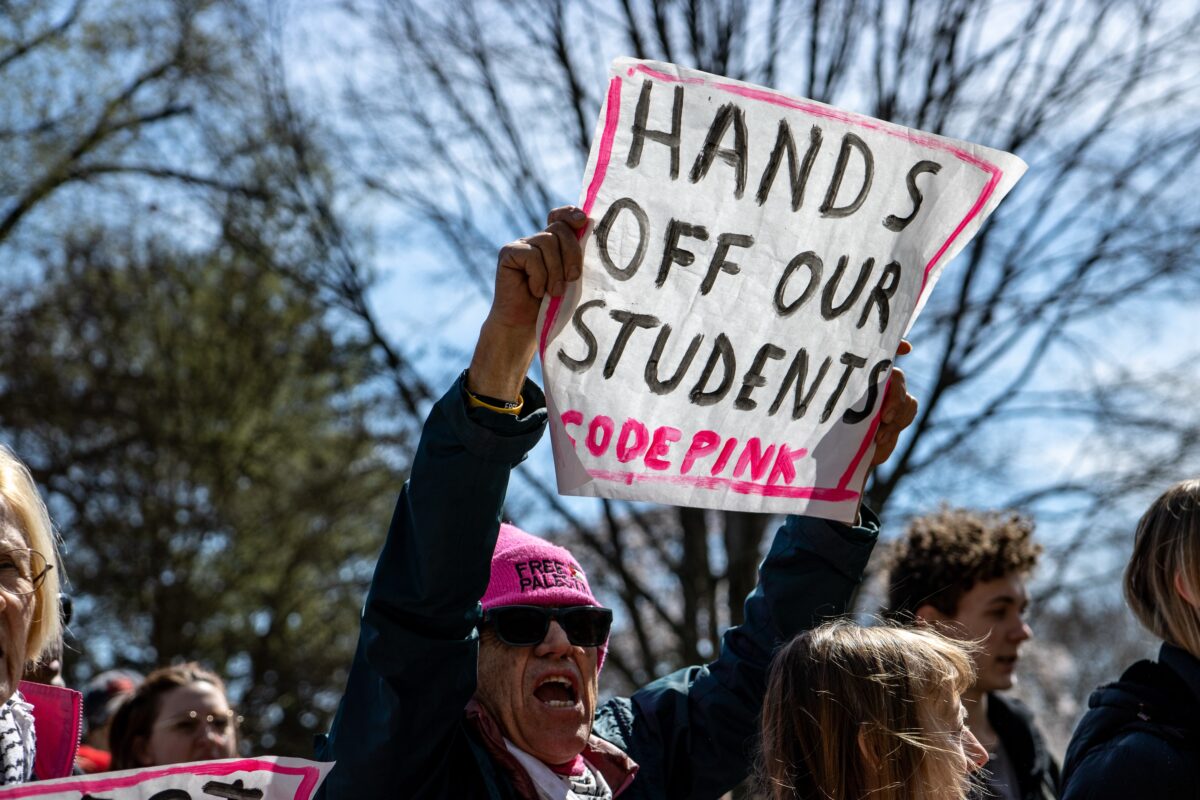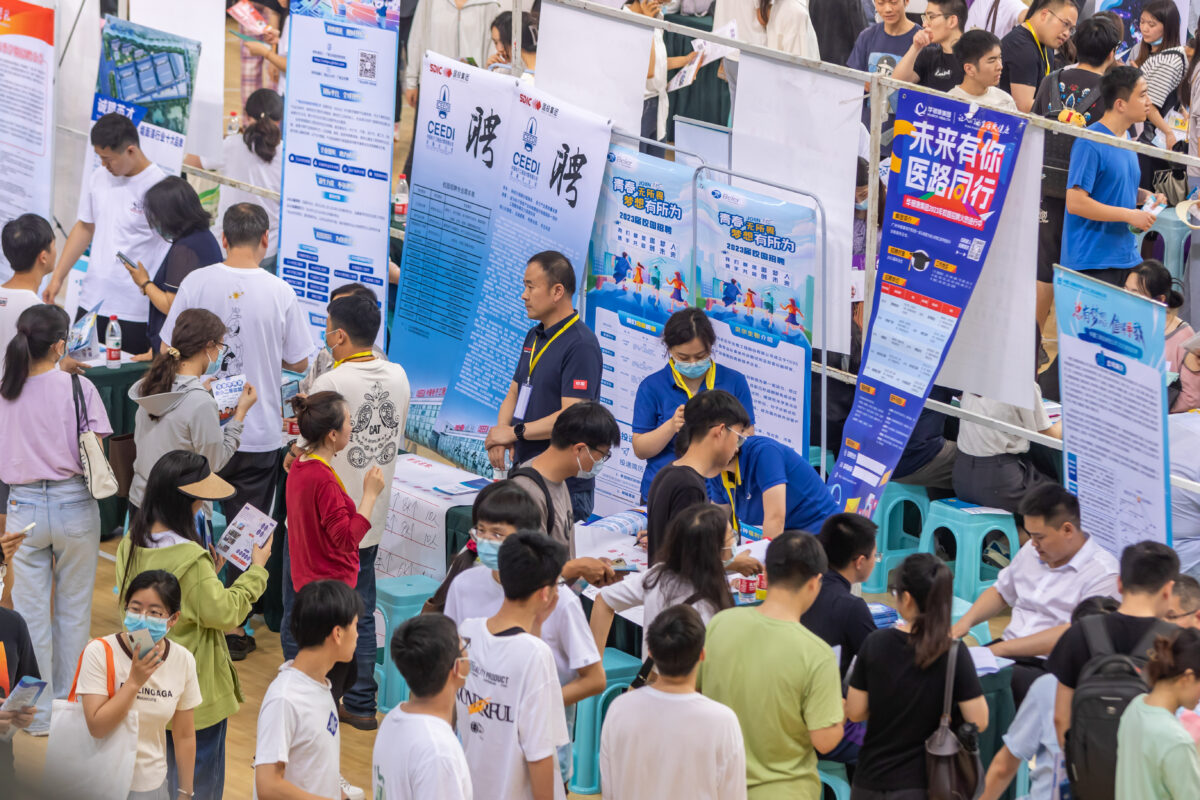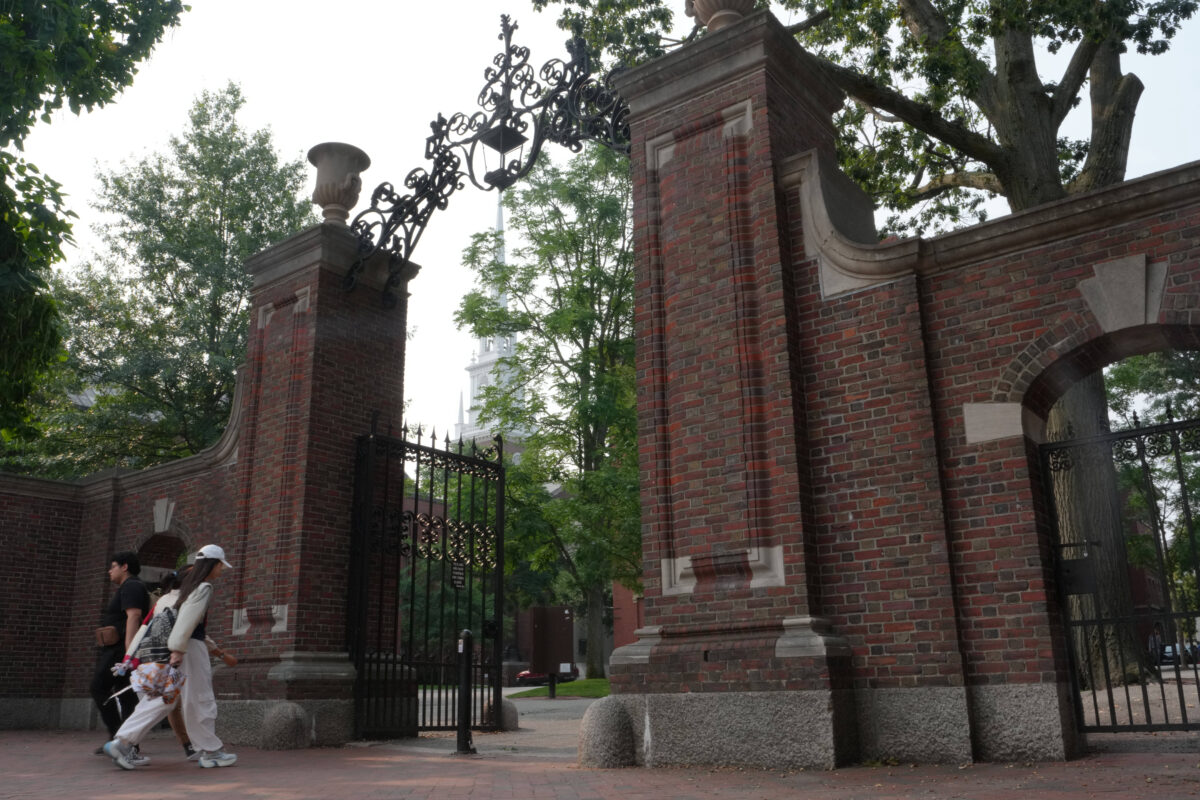
The immigration officers never showed up. Wu Qiong exhaled, relieved to have dodged a bullet.
Wu, 28, has spent more than eight years in the U.S. as an international student, currently finishing a literature PhD at a public university in a western American state. She says the spring 2025 semester was her hardest since leaving home in Guizhou, China.
For the latest news & views from every corner of the world, Worldcrunch Today is the only truly international newsletter. Sign up here.
In March, word came that her grandfather had suffered a stroke. She prayed he would pull through until she could fly home after finals in two months. He didn’t. Battling cancer, he began bleeding uncontrollably after a change in medication. Wu’s passport was days from expiring and getting a renewal would take another 10 business days.
“He passed away before I could get back,” Wu says.
With no chance for a final goodbye, Wu stayed to finish her semester, worried that if she left she might not be able to return to the U.S. and resume her studies. The fear was real: over several weeks, U.S. Immigration and Customs Enforcement (ICE) began cancelling thousands of noncitizen students’ visas without explanation.
Every day we were guessing what could get you revoked.
Wu read that some students swept up had never joined pro-Palestinian actions — only had speeding tickets. “Every day we were guessing what could get you revoked,” she says. She had traffic violations and, more critically, had camped on a campus lawn in spring 2024 to support the people of Gaza while earning her master’s.

As a natural optimist, Wu didn’t panic. She wants to be a poet in English, and joked that if ICE came, she’d turn the ordeal into publicity. Despair hits only when she thinks of her grandfather.
As U.S.-China political friction grew, Xie Nan sensed that people’s interactions were changing. When he first arrived a decade ago to study business on the East Coast, China was a normal campus topic — neither political nor sensitive. Now, he says, raising China feels like raising abortion: “People assume you’re trying to make a point.”
One professor told him he deliberately cut some China-related content just to keep the classroom calm. Whenever discussions reached China — high tech, trade, foreign aid — someone would steer to Taiwan or Xinjiang. Students from developing countries chased after facts and information; while others zeroed in on ideology. Many of his Chinese classmates felt caught in the middle.
In his final year at Harvard, as he sensed a fading appetite to learn about each other’s countries, Xie offered to organize a class trip to China. Sign-ups were strong — but then Trump’s second term began. More than a dozen dropped at the last minute: international students feared re-entry trouble; American students feared career fallout.
“Going to China is getting sensitive,” he says. “Especially for those considering a career in politics. They don’t want any footprint from China.”
No cushion
Born in 2005, Zhang Ruize hasn’t been in the U.S. long. The past three years, he says, have been an experience in “de-glamorization.”
Majoring in economics, Zhang tracks the economic indicators closely — even in Uber chats where he noticed how inflation has made Americans’ lives tougher. In his area, home prices doubled in three years, rents rose by about one-third, and everyday costs nearly doubled. “On the surface at least, COVID may have hit the U.S. harder than China,” he says.
In his junior year, Zhang struck out in his search for a summer finance internship, but wasn’t crushed — he had already decided to return to China after graduation.
Living here, we’re always second-class citizens.
“For international students like us, the odds aren’t fair in this market,” he said. Even with a job, excluding the rent, food, taxes and insurance, he figured he’d save very little—nowhere near a decent emergency cushion.
Beyond the costs, the seesaw of U.S. politics rattles him. He avoids activism and sensitive sectors, no longer idealizes immigrant life.
“Living here, we’re always second-class citizens,” he says.

He knows the workplace in China is more relentless, but he still prefers the familiar stability— affordable milk tea, food that tastes right, and walking the streets without constant unease.
The “original sin” of coming home
“There are spies among the returnees. I don’t know who is and who isn’t,” President and chairwoman of Gree Electric, Dong Mingzhu says at a shareholders’ meeting on April 22, 2025, explaining her recruiting strategy. She says she would never hire overseas returnees, but only graduates of domestic universities — a remarkable statement for the head of a national champion whose motto is “Make the World Fall in Love with ‘Made in China.’”
The news took Feng Yuhao back to his first year of college on the West Coast of the U.S., when he fretted over ticket prices and shifting entry rules. A political-economy major, he wasn’t enraged so much as resigned: as U.S.-China ties worsened, students like him were hit from both sides.
Raised in Beijing’s Haidian District — one of the Chinese capital’s lively student neighborhoods — Feng grew up around people who studied abroad and returned as mainstays at home. It was an arc he pictured for himself. His father, typical of the “post-80s” generation, who learned English through Voice of America, urged him to treat the U.S. as a place to learn, but to then come back to build a career.
If you won’t be trusted, not even to be seen as talented, then what was it all for?
After undergrad, Feng earned master’s degrees in Europe and China and made friends worldwide. He noticed that his friends from Central Asia and the Middle East weren’t distrusted at home for overseas study; many even went straight into public service. While Chinese students like him kept wondering: if you won’t be trusted, not even to be seen as talented, then what was it all for?
Suspicion of the overseas-educated isn’t anything new in China, says Liu Jiaqi, a sociology professor at Singapore Management University who studies Chinese diaspora politics. Under Ming-Qing maritime bans, leaving for “barbarian lands” was treated as betrayal; returnees could be criminalized. The mindset lingers: “If you deviated from our great nation, I must first ask where you stand.”
“Am I patriotic?” Feng asked himself upon arriving in the U.S. He knows he grew up privileged — educated in top public schools — and wants to contribute to his country, even while struggling with his criticisms of social inequities. One of his history professors says that patriotism and criticism can coexist. It eased his mind, if not the scorn he sometimes feels back home.
“During the Cold War, China often cast overseas ties as dangerous,” Liu Jiaqi says. “After China’s reform and opening-up, Deng Xiaoping flipped it: overseas ties are an asset to be used.”
The “homelessness” in mind
For Guo Weirong, a sociology post-doc at Harvard, the image of Chinese students on U.S. campuses fit into two categories. “They’re the universities’ cash cows, permanent foreigners — or potential security threats. No one links them to democracy anymore.”
Analyzing more than 1,500 U.S. news stories from 1980 to 2020, Guo found a shift: around 1989, students were lauded as democracy champions; later, headlines fixated on tuition flows and “integration,” while security-threat narratives stayed constant. In 2023, soon after she arrived at the University of Pennsylvania, a professor in the Graduate School of Education emailed her for help: with 80%–90% of the cohort from China and increasingly insular, “What are they really thinking?”
China doubts you; the U.S. doubts you. Most people are lost in between.
Being apolitical, quiet and only socializing with Chinese peers in the U.S. has only deepened the stereotypes. Guo believes that avoiding politics-related topics is simply a sign of their adaptive strategies. Some students expect free speech when they arrive, then find “another field of political taboos” and self-censor, growing cynical. Others with progressive leanings can’t find allies as U.S. campus activists focused on domestic issues, with little interest beyond America.
“Mentally speaking, they’re homeless in the cultural and political aspects,” Guo says. “China doubts you; the U.S. doubts you. Most people are lost in between … In today’s climate, silence often feels safest.”

Pick and choose
As a kid, Li Mingran listened to American pop, watched Hollywood films and practiced English with a tutor from Arizona. A high-school summer camp sealed his plan to study in the U.S. Since moving at 18, he has lived in five cities across the East, Midwest and West.
Unlike many, Li rarely wrestled with belonging — largely because of his field: artificial intelligence. From labs to conferences, startups to giants, he never felt sidelined for his nationality or ethnicity. People around him rarely brought up politics, completely immersed in work.
But questions about Li’s identity started to surface in 2025 as the U.S. and China raced ahead in AI and the technical gap narrowed while the rift deepened.
Li noticed that even academic conference hosts felt it. Should high-profile workshops be in the U.S. or elsewhere? In the U.S., mainland PhDs feared visa denials; abroad, they worried about cancellations at U.S. customs on return.
Still, Chinese tech firms are expanding their U.S. teams to better understand American users; U.S. firms are actively hiring elite Chinese engineers.
The rhetoric is combative, but the day-to-day exchanges offers some room for hope for U.S.-China collaboration in AI. Xie Nan, who’s now back in China after graduating from Harvard, sees the space for common ground. “On the business side, China and the U.S. are in some ways more connected,” he says.